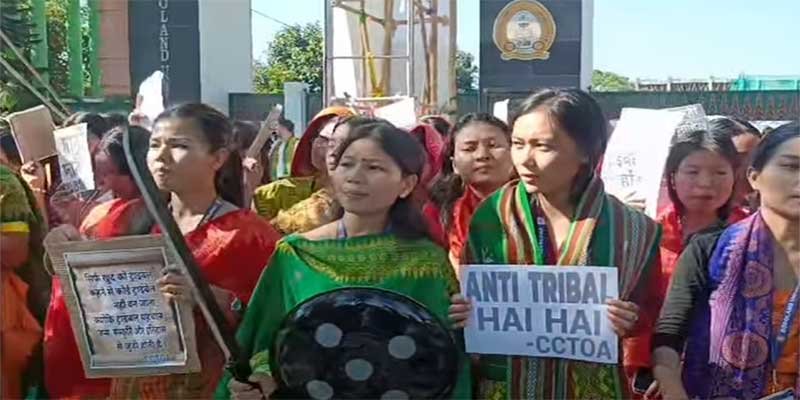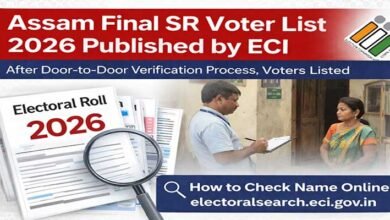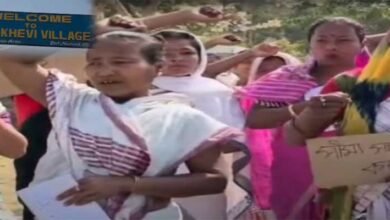Assam: Bodoland University Shut Over ST Row
Students and Bodo groups shut down Bodoland University and boycotted exams after the Assam Cabinet approved ST status for six non-Bodo communities.

KOKRAJHAR- Bodoland University in Debargaon, Kokrajhar, remained paralysed on Wednesday as hundreds of students and members of Bodo tribal organisations staged a shutdown of the campus and boycotted third-semester examinations.
The protest was triggered by the Assam Cabinet’s decision to recommend Scheduled Tribe (ST) status for six non-Bodo communities—Tai Ahom, Adivasi (tea tribes), Moran, Matak, Chutia, and Koch-Rajbongshi.
Members of the Bodoland University Students’ Union (BUSU) blocked the main entrance of the university, holding banners that read “No dilution of indigenous Bodo rights” and “Protect Article 371(B) and BTC Accord.” Protesters argued that the proposed inclusion would significantly reduce the existing quota share of plains tribes, particularly the Bodo community, within the Bodoland Territorial Region (BTR).
Also Read- Bodo Groups Protest at Jantar Mantar
A BUSU representative told reporters that the six communities, collectively numbering around 90 lakh people—roughly 27% of Assam’s population—would dominate the reservation pool if granted ST status. “The six communities are numerically large and politically influential. Granting them ST status will render indigenous tribes like Bodos a minority even within the tribal quota,” the student leader said.
Normal academic and administrative activities were suspended as tensions escalated. Security forces were deployed across the campus to prevent any confrontation. Similar demonstrations were reported from other parts of the BTR, signalling broader unease across the region.
Also Read- Zubeen Garg Case Is ‘Plain and Simple’ Murder, Says Assam CM
The Assam government has defended its decision, stating that the proposal has followed due process and that safeguards for existing ST communities will be addressed when the matter reaches the Centre. The report is expected to be tabled in the Assam Legislative Assembly on Thursday before being forwarded to the Union Ministry of Home Affairs.
Once approved by the House, the recommendation will move to the Ministry of Home Affairs and the Registrar General of India for final vetting before potential inclusion in the Constitution (Scheduled Tribes) Order, 1950.
The move comes after long-standing agitation by the six non-Bodo communities, who have argued that they face historical and socio-economic marginalisation. Supporters of the proposal claim that ST recognition would grant them constitutional protections and reservation benefits not available under the OBC category.
Analysts suggest the decision could have major electoral consequences, as identity politics continues to shape political alignments across Assam.









